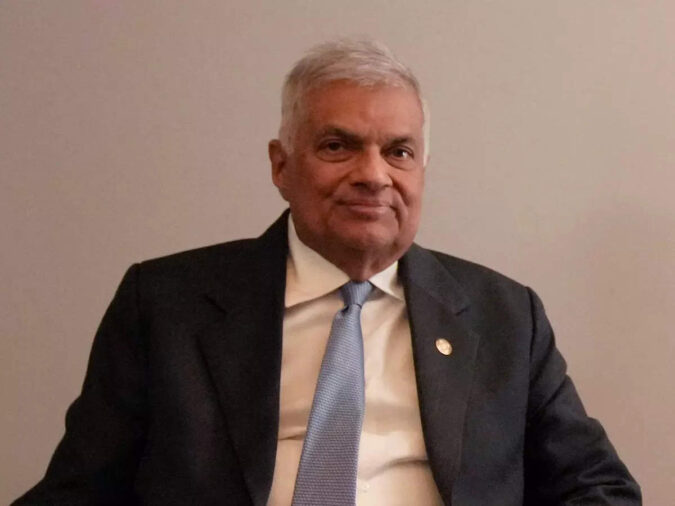COLOMBO: Sri Lankan President Ranil Wickremesinghe will embark on a two-day visit to India on July 21 during which he is expected to meet Prime Minister Narendra Modi, officials here said on Sunday.
This will be Wickremesinghe’s first visit to India since being appointed President of the cash-strapped country last year following the ouster of Gotabaya Rajapaksa in a people’s uprising in July. Wickremesinghe was appointed President for the balance term of Rajapaksa till September 2024.
India’s Foreign Secretary Vinay Mohan Kwatra will arrive in Sri Lanka early next week to work out the arrangements for Wickremesinghe’s visit to New Delhi, the Daily Mirror newspaper reported on Saturday.
According to officials, Wickremesinghe is expected to meet Prime Minister Modi during his two-day visit to India.
Officials said Wickremesinghe will finalise the implementation of several Indian projects related to power and energy, agriculture, and maritime issues in the island nation ahead of his departure for New Delhi.
Fisheries Minister Douglas Devananda, Power and Energy Minister Kanchana Wijesekera, Foreign Affairs Minister Ali Sabry and Chief of President’s Staff Sagala Ratnayake will accompany President Wickremesinghe to India, the Mirror said in its report.
President Wickremesinghe’s proposed visit to India will take place as Sri Lanka’s bankrupt economy has shown “tentative signs of improvement.”
“Sri Lanka’s economy is showing tentative signs of improvement, in part due to the implementation of critical policy actions. But the economic recovery remains challenging. Now, more than ever, it is essential to continue the reform momentum under strong ownership by both the authorities and the Sri Lankan people,” International Monetary Fund Deputy Managing Director Kenji Okamura said in June after his official visit to the debt-trapped island nation.
Wickremesinghe has introduced painful economic reforms to revive the country’s economy.
The country, which declared its first-ever credit default in mid-April last year, secured a bailout from the IMF of USD 2.9 billion in March this year, spanning over 4 years subject to reforms being put in place.
This will be Wickremesinghe’s first visit to India since being appointed President of the cash-strapped country last year following the ouster of Gotabaya Rajapaksa in a people’s uprising in July. Wickremesinghe was appointed President for the balance term of Rajapaksa till September 2024.
India’s Foreign Secretary Vinay Mohan Kwatra will arrive in Sri Lanka early next week to work out the arrangements for Wickremesinghe’s visit to New Delhi, the Daily Mirror newspaper reported on Saturday.
According to officials, Wickremesinghe is expected to meet Prime Minister Modi during his two-day visit to India.
Officials said Wickremesinghe will finalise the implementation of several Indian projects related to power and energy, agriculture, and maritime issues in the island nation ahead of his departure for New Delhi.
Fisheries Minister Douglas Devananda, Power and Energy Minister Kanchana Wijesekera, Foreign Affairs Minister Ali Sabry and Chief of President’s Staff Sagala Ratnayake will accompany President Wickremesinghe to India, the Mirror said in its report.
President Wickremesinghe’s proposed visit to India will take place as Sri Lanka’s bankrupt economy has shown “tentative signs of improvement.”
“Sri Lanka’s economy is showing tentative signs of improvement, in part due to the implementation of critical policy actions. But the economic recovery remains challenging. Now, more than ever, it is essential to continue the reform momentum under strong ownership by both the authorities and the Sri Lankan people,” International Monetary Fund Deputy Managing Director Kenji Okamura said in June after his official visit to the debt-trapped island nation.
Wickremesinghe has introduced painful economic reforms to revive the country’s economy.
The country, which declared its first-ever credit default in mid-April last year, secured a bailout from the IMF of USD 2.9 billion in March this year, spanning over 4 years subject to reforms being put in place.
